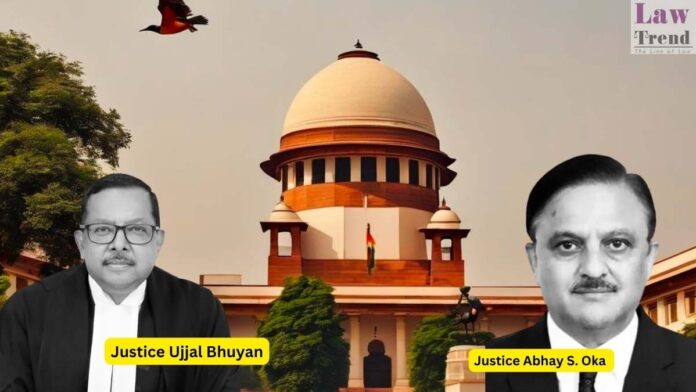In a significant judgment clarifying the interplay between service regulations and disciplinary penalties, the Supreme Court of India has ruled that an employee removed from service “with superannuation benefits” is entitled to pension only if he or she is otherwise eligible under the applicable Pension Regulations. The ruling came in the case of UCO Bank
To Read More Please Subscribe to VIP Membership for Unlimited Access to All the Articles, Download Available Copies of Judgments/Order, Acess to Central/State Bare Acts, Advertisement Free Content, Access to More than 4000 Legal Drafts( Readymade Editable Formats of Suits, Petitions, Writs, Legal Notices, Divorce Petitions, 138 Notices, Bail Applications etc.) in Hindi and English.




